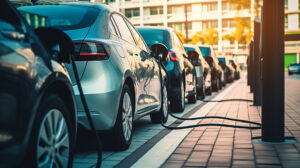Electric cars have advanced so much since they were first released and continue to do so. As they rise in popularity, charging them has become more and more convenient, with charging points popping up in supermarkets and service stations all over the country.
What Are The Benefits Of Electric Cars?
The biggest attraction to electric in today’s climate is the ever-growing cost of fuel. Hybrid and electric cars use much less or even no petrol/diesel at all. A full electric charge could cost less than £1 for the electricity. This would give you about 100 miles of power. Often, using an electric charging point also means free parking.
Electric cars also hold their value much longer, with a much higher resale value than other cars of the same age. As electric cars rise in popularity, this will continue, especially as, from 2030, the sale of new petrol and diesel vehicles will be banned.

In terms of sustainability, electric cars are, of course, much better for our planet. Electric vehicles have no tailpipe, meaning they don’t emit any exhaust gases, reducing local air pollution. When you think about the amount of pollution from cars in congested cities, you can really imagine the impact. Some areas are even introducing exemptions from congestion charges for electric vehicles.
The government has introduced a grant for plug-in vehicles, allowing people to get a discount on the price of new low-emission vehicles. There’s a full list of eligible vehicles on the gov website.
Another benefit of electric cars is that they are much quieter than petrol and diesel cars. Electric causes so much less noise pollution that they are now required by law to have an Acoustic Vehicle Alert System (AVAS), which will make a sound when travelling at less than 12mph so that people around actually know the car is there.
Are There Any Negatives To Buying An Electric Car?
With any new technology and transition, there will be some negatives. With electric vehicles, the initial cost and insurance could be higher than a petrol or diesel vehicle, but over time this cost will be paid off by the savings in fuel. Another negative would be the range of choice. There are far more options with petrol and diesel cars.
However, with these being the only two real negatives, this should be the time when you start to think about switching to electric. Particularly if you are a company or business that wants to lower its carbon footprint and be ahead of the curve, as we know this is where the future of transport is heading anyway.
Here at Trident Marketing, we have ordered two electric vehicles to be used as company cars by our directors. Another exciting step in our journey towards making Trident carbon neutral.
